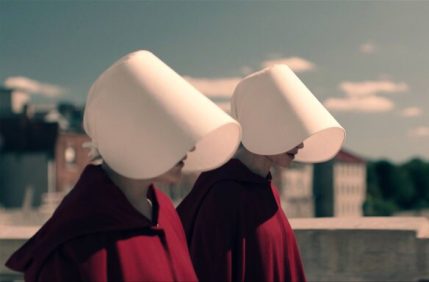
Are you one of those who think that Nature gave a woman breasts, not that she might feed her children, but as pretty little hillocks to give her bust a pleasing contour? Many, indeed, of our present-day ladies do try to dry up and repress that sacred fount of the body, the nourisher of the human race, … lest it should take off from the charm of their beauty.
It may be a bit flowery, but the quote accurately expresses the anxiety of contemporary lactivists over the sexualization of breasts leading women to ignore their most important function, providing milk for newborns.
Therefore, you may be surprised to learn that the quote comes from Rome in AD 150.
[pullquote align=”right” cite=”” link=”” color=”” class=”” size=””]The lactivist project is dystopian in its efforts to indocrinate, regulate and measure the behavior of women.[/pullquote]
How about this quote bemoaning the fact that rich mothers refuse to breastfeed while poor mothers do so eagerly?
Most mothers of any condition either cannot or will not undertake the troublesome task of suckling their own child… The Mother who has only a few Rags to cover her Child loosely, and little more than her own Breast to feed it, sees it healthy and strong, and very soon able to shift for itself; while the puny Insect, the Heir and Hope of a rich Family lies languishing.
That’s William Cadogan writing in 1750.
Or this quote about indigenous women, closer to nature, and therefore better able to nurture their infants.
The ideal nursing mothers are the cow among animals and the peasant mother among our own kind, who do not think about it all, but get on with the job, and in this matter an ounce of faith is worth a ton or more of science and book-lore.
Lindsey W Batten writing in 1838.
Indeed, as Pam Carter notes in her chapter Breast Feeding and the Social Construction of Heterosexuality, or ‘What Breasts are Really for’ from the book Sex, Sensibility and the Gendered Body the purported conflict between the sexualization of breasts and the proper use of breasts has been going on for at least two millennia and probably far longer:
While some attribute this conflict to ‘Hollywood’ or ‘modern civilisation’ it is clear that it has earlier manifestations within Western culture.
It has little to do with what benefits babies. The anxiety about breastfeeding reflects the anxiety about the role of women within society.
Concern about breast feeding constitutes concern about women’s behaviour… At the heart of the breast feeding ‘problem’ is a preoccupation with the failure of women to use their breasts in ways which are deemed natural…
Sound familiar? It should; I’ve been writing the same thing for years.
How dare I (or anyone) question the benefits of breastfeeding? According to lactivists, anyone who questions breastfeeding must hate breastfeeding.
But as Carter suggests:
Perhaps the fact that raising questions about such a taken-for-granted good thing looks like a hostile act should alert us to an arena which warrants further scrutiny.
Breastfeeding is a proxy for attitudes about women’s emancipation from stay at home motherhood.
…Despite the preoccupation in the breast-feeding literature with the inadequate behaviour of women, there is almost no recognition that breast feeding is constructed within gendered social relations. Women are always present within discussions about breast feeding but are presented as unproblematic natural beings. In that respect women are strangely invisible…
There is an assumption that breast feeding is always in women’s interests, that in itself it is a form of resistance to patriarchy. But there is little attempt to look at breast feeding from the point of view of women themselves nor at the impact of the powerful linkages which are made between good mothering and breast feeding. There are limited opportunities for women to articulate a different perspective…
One sentence from the chapter struck me forcefully:
So the naturalness of breast feeding is endorsed by science and controlled by medicine through various surveillance techniques.
What is the Baby Friendly Hospital Initiative if not an attempt to control women’s behavior through various surveillance techniques? The contemporary lactivist project is dystopian in its efforts to indocrinate, regulate and measure the behavior of women.
It is dystopian in its use of public shaming — mandatory visits of lactation consultants, formula consent forms, and public condemnation of bottle feeding.
It is also dystopian in that it flagrantly ignores — indeed denies the existence of — the harms to babies physical health and women’s mental health from equating breastfeeding with good mothering.
We are encouraged to imagine — with no evidence whatsoever — that a society in which every woman breastfeeds is a better society but the key question is never asked, let alone addressed. Better for whom?
Controlling women by controlling their breasts is not better for babies and it’s not better for mothers. It is only better for those who want to keep women in their traditional, biologically determined, misogynistic place.

